

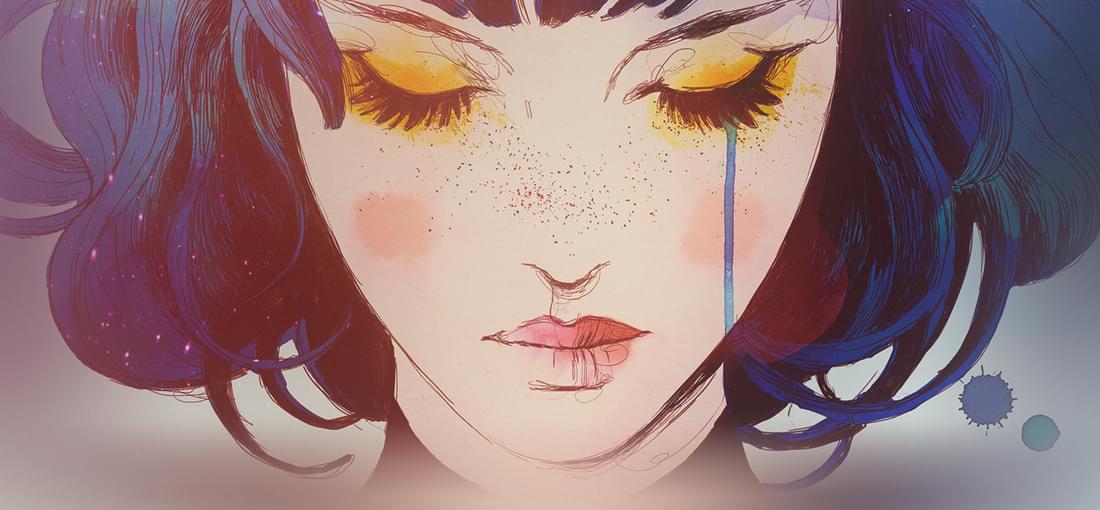
GRIS is gorgeous, and I don't mean only visually. While GRIS definitely is an art game - or rather, it is a piece of art - all its elements complement each other. Music, graphics and gameplay are all connected. It often happens that gameplay in art games is either non-existent or completely unrelated to what's going on; music can be good on its own while neither being enhanced nor enhancing anything in the game itself; visuals are sometimes "artsy" or pretty for the sake of just that. In GRIS, the pieces that make it a game fit together and into each other to create an enjoyable and emotional experience that doesn't get boring and doesn't need an explanation. Gameplay, visuals and music basically ARE the story, or rather, the process portrayed in the game since I'm not sure I would call it a "story" as such. The gameplay isn't exactly innovative or excellent in what it does. It's fairly casual puzzle-platforming with a tiny bit more thinking when you want to get the collectibles - yes, there are collectibles, but not thousands of them, and they're not frustratingly difficult to collect. In fact, there was only one point where the game got frustrating for a minute or so because it didn't explain the bird mechanic well enough, and that's mostly on me. More mechanics are added to the platforming throughout the game to prevent it from going stale, and even those mechanics go with the theme(s). Don't come to GRIS for a challenge. It is interactive art that does a lot with what seems very little, does it extremely well, and does it in a non-pretentious way. It doesn't try to lecture the player, it simply shows something that I'd wager every single human goes through at least once in their lifetime in a very beautiful and satisfying way.
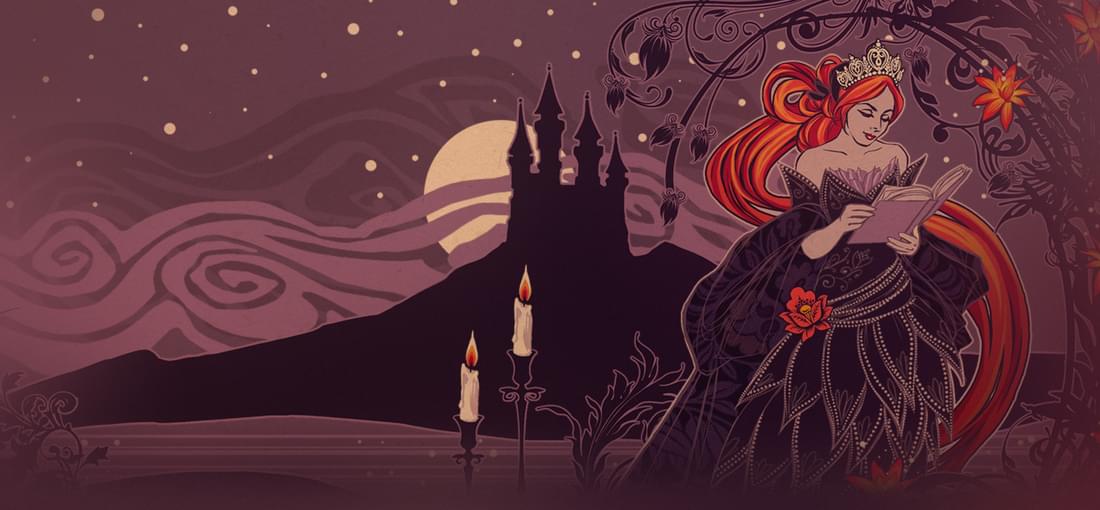
Cinders is a visual novel with gorgeous art, a main character who actually has a brain and ambitions of her own, and many decisions which influence both the ending and your relationships with the other characters. After the death of her father, Cinder is left as an orphan living with her despotic stepmother and her two stepsisters. She's treated like a servant in her own house and has pretty much had enough of that. What's interesting is that if you don't bother trying to get to know Cinders' family, they remain cruel and entirely unlikeable, but if you do make an effort, it turns out every one of them has their reasons for being the way they are, and they may even change for the better. Other than that there are small mysteries to uncover and either dismiss or use to your own advantage while you try to make a better life for Cinders. Unlike many VNs, this one's focus isn't on romance. There are three potential love interests along the way, but I have to say neither of them is very deep or interesting which is fine, since Cinders' main "objective" is to turn her life around. They are not unlikeable, at least. A single playthrough is somewhat short at about 4-5 hours. While the art style is honestly beautiful and very detailed, there is not much variety to it. It's not a problem that Cinders doesn't have special scenes, just a bit disappointing. There are only 8 save slots which seems low for a VN, but it's not a huge issue since it is fairly short and skipping scenes you have already seen is very quick. In-game options are somewhat limited. There's no volume slider and the highest resolution to choose is 1280x800, full-screen or windowed. Getting all achievements does not mean you've seen all there is to see in the game; to see whether something is missing, the endings that have been unlocked can be reviewed from the menu. Overall, Cinders is a fun little VN with some shortcomings that do not diminish the enjoyment.
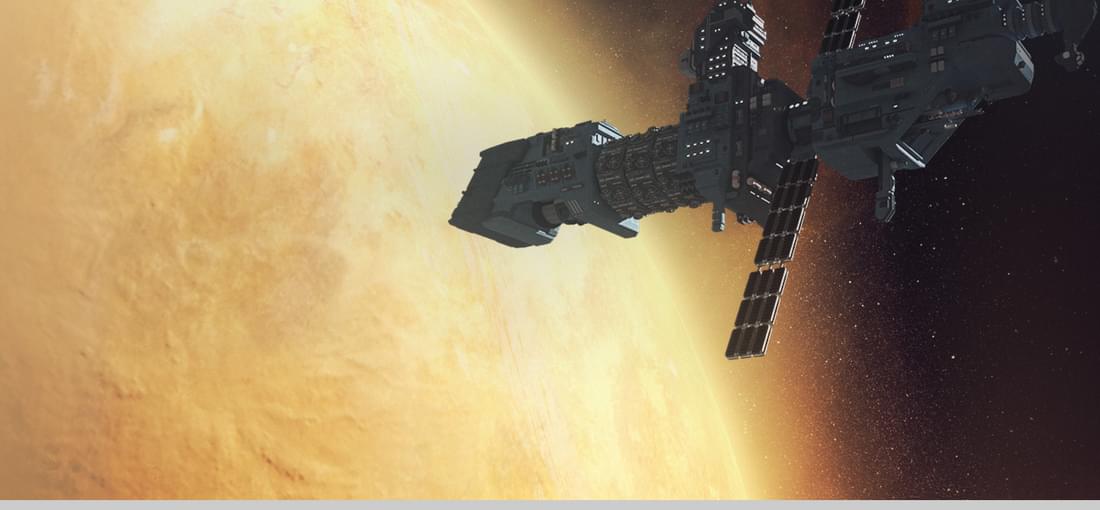
J.U.L.I.A. Among the Stars is a puzzle point & click adventure in space. You are Rachel. You are on a space ship and have been in cryosleep for a while. The ship's smart-ass AI wakes you up because everything is on fire. Your crew has abandoned you and you're just kind of floating around in space, in a strange far-away galaxy, so naturally you go and send your robot Captain Obvious down to the planets to figure out what on earth - excuse me, what IN SPACE happened. Graphics are very detailed, varied, and overall pretty, though the cutscenes seemed a bit low-res at 1080p. There's voice acting which is pretty good, but I turned it off towards the end since it annoyed me a little; occasionally it interrupted my thoughts because when you discover something relevant, the characters will start speaking before you can actually get an understanding of the situation. The music is nice, though not very memorable except for the end credits song which is beautiful. The game is more puzzle than point & click. There's not really an inventory; you simply explore different environments, examine everything, pick up stuff, read notes and diaries, and fix things. Most of the puzzles are different which keeps things interesting, though a few also involve a lot of going back and forth which can get a bit tedious. The story is rather intriguing as you go along and piece together what DID happen. You get to explore several very unique planets and solve puzzles along the way to make the ruins left by humanity work again and explain everything to you. Some parts of the plot are very predictable, but that doesn't make it less enjoyable. What's nice about J.U.L.I.A. is that it's not linear; almost from the start you have a choice which planet to go to next. You might be unable to proceed at some points if you don't have the required things, but that doesn't diminish the prospect of exploring a galaxy much. Basically, if you like puzzles and/or story, I very much recommend this game.
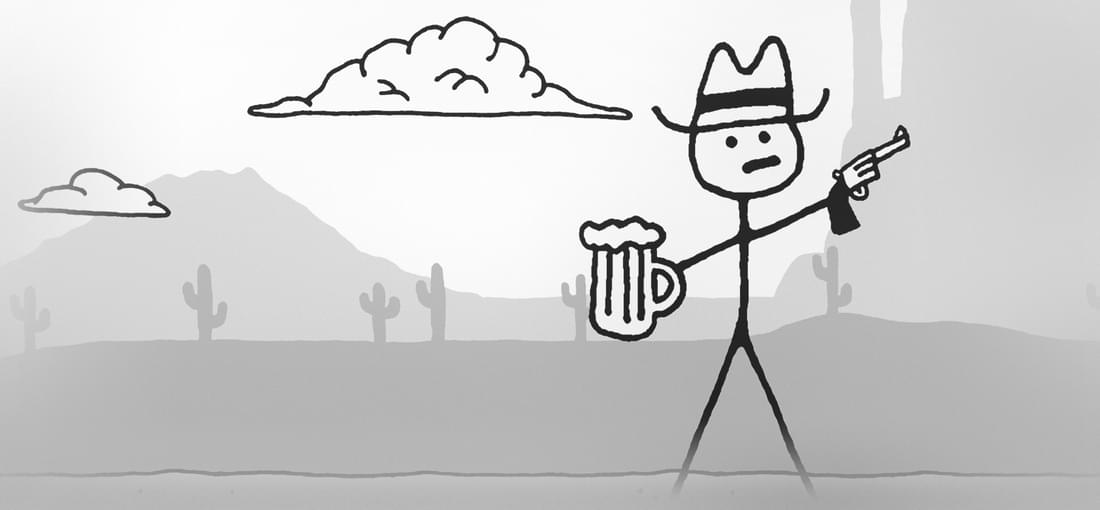
West of Loathing is a quirky, funny, explorative, weird, turn-based RPG. I don't usually like using the word “quirky” because I tend to associate it with “forced funny/weird”, but WoL is actually funny. I caught myself laughing out loud quite a few times during my first playthrough, and the stick-figure black-and-white artstyle only adds to that. Of course, you have to actually like the humour in it. It's mostly silly, with some fourth wall breaking later on. If you don't appreciate the way the narrator tries to keep you from digging for items in spittoons and eventually just gives up on you, well - leave the spittoons alone. Mind you, the game has issues. The combat isn't very interesting and can just be unfair at times since you can run into encounters that seem designed for later points in the game. There are WAY too many abilities and items, especially apparel; the problem with the latter is that you might need some of it for side quests later and it's not made clear at all. I sold a hat at some point which I needed for a side quest later and couldn't buy back. You can also get overpowered easily if you just make liberal use of the consumables, and if you don't have enough of one stat for a certain quest, you can just switch out equipment. That's not necessarily a problem, and considering how much stuff there is to do in this game, I actually like that, but it does feel a bit cheap at times. I barely even leveled up my three primary stats in both playthroughs, but got them all up extremely high (+46, +60, +46) with consumables and gear towards the end. There's a lot to do, and a lot of (semi-)hidden stuff. You can just go through the game once without paying much attention to side stuff, and some is really obscure/complicated – almost annoying – but even just a simple playthrough is immensely enjoyable if you like the mechanics and humour, both of which are well done. Definitely recommended for a very fun experience with little frustration.
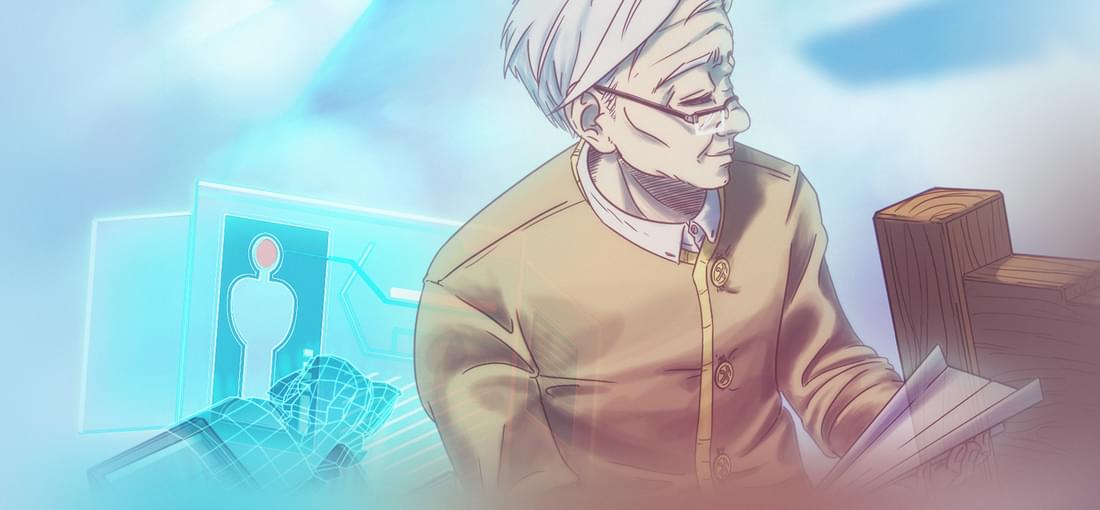
I like To The Moon. Don't love it, but the story it tells is great, the music is good, and the art style is beautiful. The humour in it is not my thing for the most part, and sometimes it seems out of place, considering the story itself. Finding Paradise is a sequel to TTM. You're playing the same two characters and once again attempt to change a dying man's memories to grant his last wish for a more fulfilling life. He is happy with his life but has some regrets, so you enter his memories as Neil and Eva to figure out how to help him. This also has good music and the same beautiful art style; unfortunately, it has the slow walking, the out of place humour, even more out of place combat, and a repetitive minigame to proceed to the next memory as well. The story isn't as interesting or touching as TTM's. Until about half-way through the game, it is at least intriguing, but once the mystery is solved, it turns into a drag and to be honest, some of what happens after that point feels downright ridiculous (and tedious). Basically, I didn't like the gameplay in TTM, but the story and characters kept me going. Finding Paradise's story is not good or interesting enough to make me overlook the unenjoyable gameplay. My opinion is evidently a somewhat unpopular one. It's obvious that a lot of love and effort went into making Finding Paradise, and I'm sure many people enjoy it; sadly, I did not. Would still - albeit with reservations - recommend this to anyone who loved To The Moon.
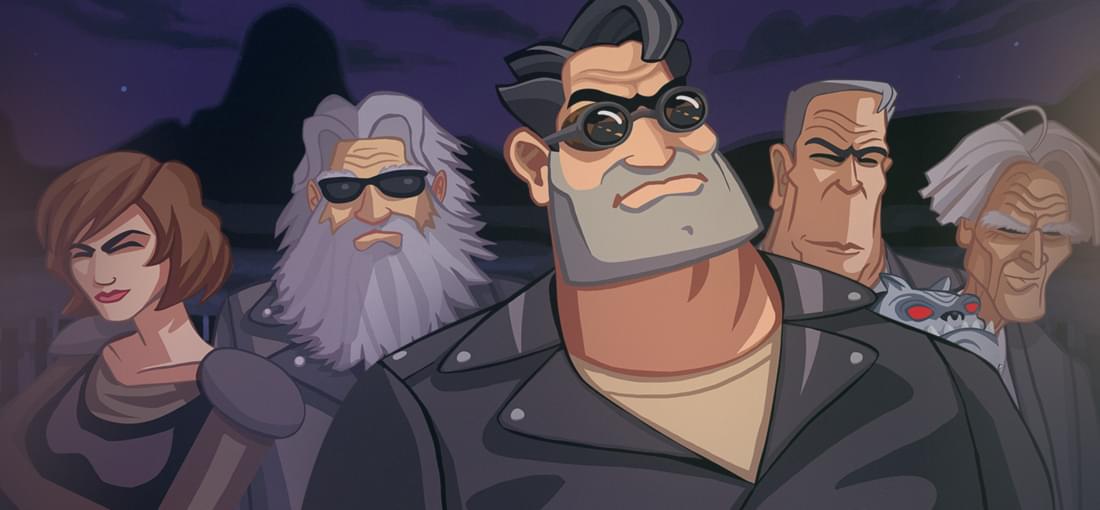
Full Throttle is a Point & Click with action sequences that seem oddly out of place. It has humour, bikes, and great music if you like rock; it's also kind of annoying. First, those action sequences. You basically drive around on your bike and punch people, throw acid at them, or hit them with a chainsaw. (The funny part is that the main character Ben gets framed for a murder he didn't commit, but I'm pretty sure I ended up watching him murder at least three people over the course of the game, which to be honest I don't mind because they were all pricks and probably deserved it.) Anyway, the gameplay here is fine, I suppose, just not amazing, and the game could honestly do without. Second, Ben is the slowest man alive. Of course you don't have to do too much walking, but when you do, you'll probably feel an urge to shove Ben off a cliff just to see him go fast for once – without his bike, that is. There's also the fact that almost every time you switch screens while on the bike, you get a tiny little cutscene of Ben turning and driving off, which is neat, but gets old quickly. Occasionally, there is a semi-hidden timer, meaning if you don't click fast enough, you'll just die. Other times you have to do one thing after another, less obvious thing, or you'll have to do the first thing again because it failed. Of course, as a Point & Click, it also has some obscure puzzle solutions which I won't spoil, but that just comes with the genre sometimes. If you can put up with these nitpicks, you'll get a fun 3-4 hours out of this, and even though I was annoyed, I'd still recommend it. I like that this edition lets you switch between classic and remastered graphics/sound while playing, for a side by side comparison. While I'm not personally a fan of the updated graphics – same goes for DotT and Monkey Island – I think they are very well done and the sound definitely needed some polish.

Action game with lightsabers and your standard “evil Sith want to destroy all the Jedi” Star Wars plot. You can choose your character's gender and pick from a handful of different (alien) races, plus you get to decide what colour your glowstick – I mean, lightsaber is. Other than that, there is one choice towards the end where you decide whether you want to be good or evil, and get a different ending depending on what you do. It starts with you as an apprentice at the eponymous Jedi Academy. Apparently you accidentally built a lightsaber, which doesn't really come up again. You go through the tutorial, or Jedi training, where the game - I mean, Jedi Master teaches you about general game-play, combat – either with guns or with your saber – and Force powers. The combat is fun enough, and as usual, Force Lightning at higher levels is OP as hell (also fun). You're usually fine using only powers and the lightsaber, although some later enemies are easier to deal with by shooting them in the face with massive guns. The game dragged on a bit. At first you do a few seemingly random missions; there is a list from which you can choose, but you're pretty much required to do all but one of them before the next story mission comes around, and so it goes on. 4-5 missions, plot, 4-5 missions, plot. Granted, the missions are also sort of plot-related, but don't move anything forward. Levels are varied enough, though later in the game I had quite a bit of trouble figuring out where to go and what to do. Combat, while mostly interesting, gets a bit repetitive (and clusterfucky) once those damn Sith show up. Overall I'm kind of “meh” about the game. I liked it at first, but even though it's only 8-10 hours long, it overstayed its welcome somewhat. Bonus points for letting me kill myself with a tree and fail a mission by tossing a lightsaber at my ally, though.
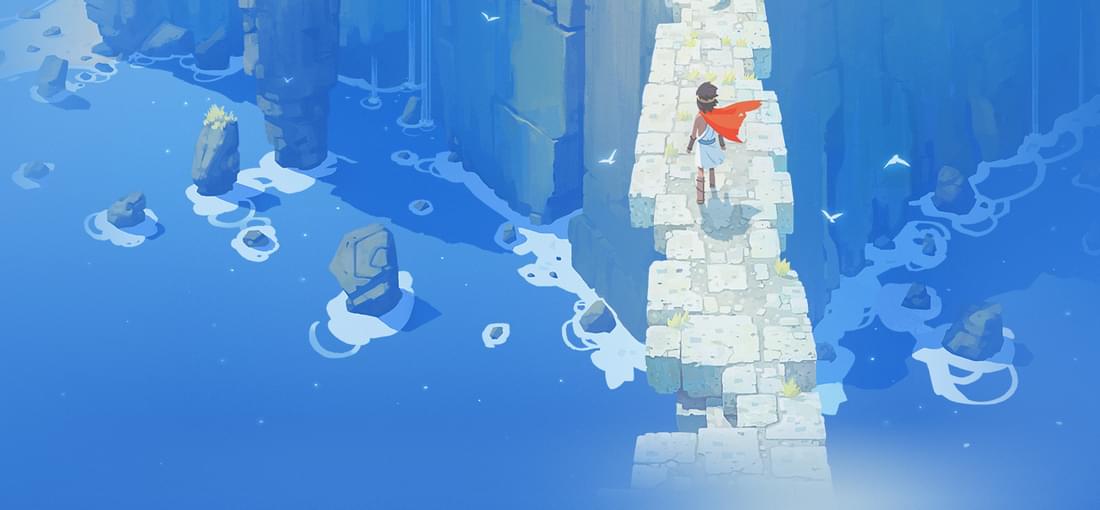
A pretty game with nice music, a vague story, and exploration. You start off on a beach, lost. You can explore a beautiful island, occasionally being interrupted by cutscenes that usually include an adorable fox. There are puzzles, but they are not very complicated and mostly require some sort of environment manipulation. I like the puzzles because the concept is interesting, but they're not very hard. One mechanic in the game is yelling at things. No, really - that's a thing. You yell at statues to make them open things. Yell at large balls to make them resonate with statues so they open and/or activate several things. Pick up balls and take them somewhere to yell at them and kill or activate things. Yell at fire to make it more fiery. It's kind of interesting because sometimes the yell button does something other than yelling. I loved the beginning of RiME because it's beautiful and there was so much exploration in the first part. The movement was sort of wonky because even though the player character is running all the time, he's kinda slow which can get annoying, and climbing is irritating because first of all, he doesn't just grab on to ledges, he half-grabs them and kind of fumbles around every time; second, when you have to jump over a gap, his jump is normally JUST far enough, so if you don't nail it, you'll fall and have to climb up again. There is a lack of direction in this game. Some clues as to where you're supposed to be going would be nice, especially when you want to explore before actually continuing with the story. Screw that bird too. This is a game that doesn't need enemies. Later on - when the bird showed up - it got kind of annoying, and nothing after that was as wondrous and fun as the first part. Still a recommendation from me. It's very beautiful and fun overall if you can deal with its issues. Wonky performance; had to turn down some settings for stable FPS, and turn down more for it to not burn up my GPU, and that's not just me.
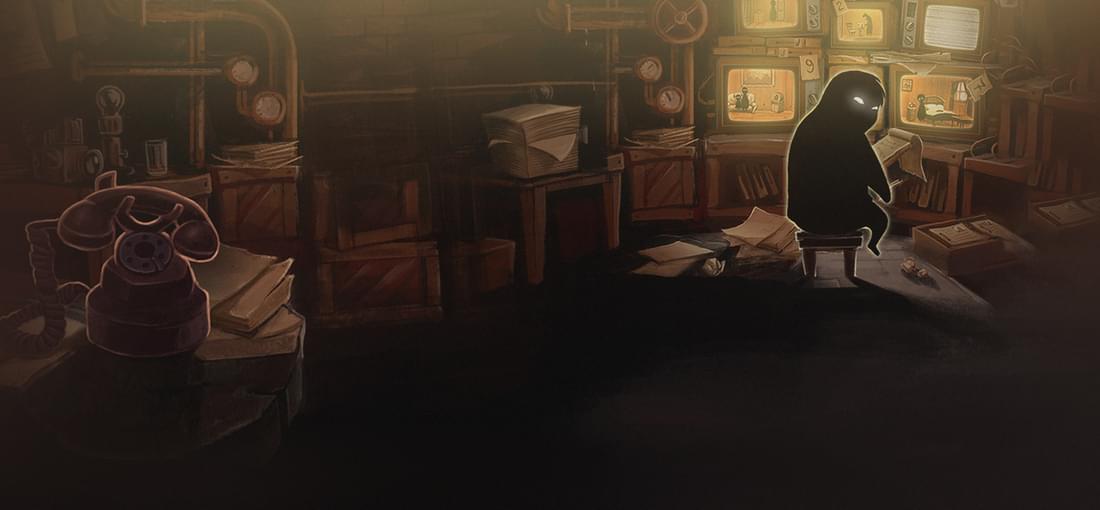
3.5 stars. That's pretty good, actually. You play as a government employee whose job entails keeping an eye on the tenants of the building he's in charge of. The setting is a dystopian one and the game looks accordingly bleak, with characters being black shapes and everything looking a bit dark and grey. Graphics are somewhat simplistic, but also appealing in a way. Game mechanics are fairly simple: You earn money by installing cameras and microphones in the apartments and selling certain information to your employer - or not. Other means of acquiring wealth include blackmail and theft. Whatever you do, don't get caught; wait for tenants to leave, sneak into their places, ruin their lives - or don't. Some things are a bit annoying, like the fact that you have to hurry up to not get caught in your shenanigans, or that some things will lead to other, terrible things, which you may not have any way of telling. Overall Beholder has a vague Papers, Please vibe to it, and like in that game, you can either do your job and not care or do your best to help the people around you, all while taking care of your family and trying to keep them alive. I enjoyed this game a lot, but I have to say it's a bit of a pain to reach the "best" ending since there are very specific requirements for that. There are several choices to make and various different endings to reach, however, so playing it again is worth it (and recommended, since a playthrough can be short or very short depending on your decisions). You will also know better what to do if you try again.